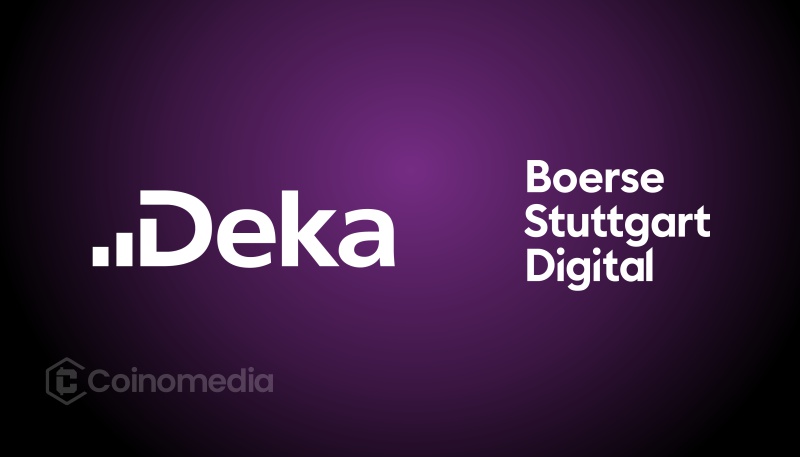DekaBank Partners with Boerse Stuttgart Digital for Institutional Crypto Trading
DekaBank joins Boerse Stuttgart Digital to offer crypto trading services for institutional clients in Germany.

- DekaBank collaborates with Boerse Stuttgart Digital for institutional crypto trading.
- The partnership enhances regulated digital asset services in Germany.
- Institutional investors gain secure access to cryptocurrencies.
German investment giant DekaBank has officially entered the cryptocurrency market by launching crypto trading services for institutional investors. The bank has partnered with Boerse Stuttgart Digital, a leading digital asset platform, to facilitate regulated and secure access to cryptocurrencies.
The move marks a significant step in the adoption of digital assets within Germany’s institutional finance sector. By leveraging Boerse Stuttgart Digital’s infrastructure, DekaBank aims to provide a secure and compliant trading environment for institutions looking to diversify into crypto assets.
Strengthening Regulated Crypto Services in Germany
The partnership underscores the growing demand for regulated crypto services among institutional investors. Boerse Stuttgart Digital, which operates under strict regulatory standards, offers a trusted platform for digital asset trading and custody solutions.
By collaborating with a traditional financial institution like DekaBank, the partnership bridges the gap between traditional finance and the emerging digital asset ecosystem. Institutional clients will benefit from enhanced security measures, regulatory compliance, and efficient transaction processing.
🇩🇪 BREAKING: DekaBank launches crypto trading for institutional clients with Boerse Stuttgart Digital. pic.twitter.com/LxUTFbm8Rr
— Cointelegraph (@Cointelegraph) February 28, 2025
What This Means for Institutional Investors
With the introduction of this service, institutional investors in Germany can now trade cryptocurrencies through a regulated and secure platform. This development is expected to boost institutional participation in digital assets, further legitimizing crypto as a viable investment option in the European financial market.
As the regulatory landscape continues to evolve, collaborations like this highlight the importance of compliance and security in expanding the adoption of cryptocurrencies among traditional financial institutions.



